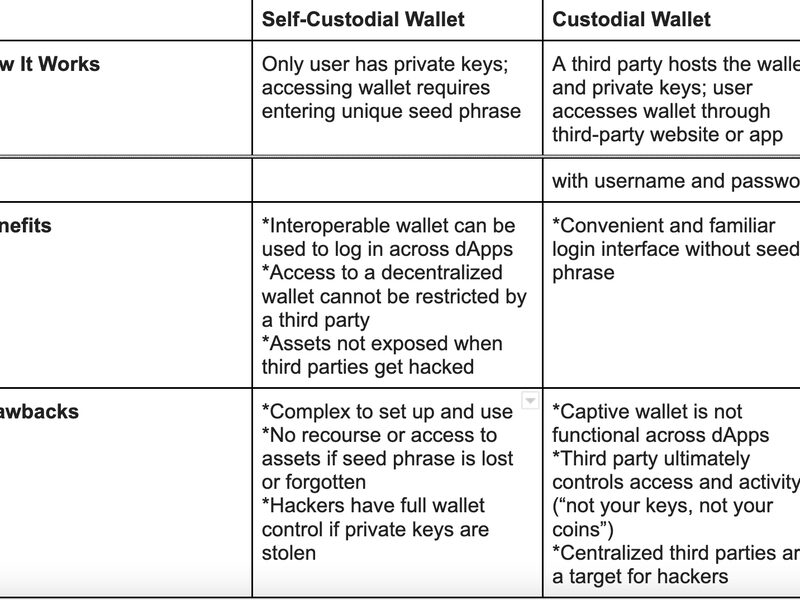Blockchain wallets are a core component of Web3. Wallets are key for user identity in Web3 and give users ownership of data and permissions in apps and smart contracts.
However, the combination of a steep learning curve and the high stakes of mistakes have been obstacles to mass adoption of Web3.
Users have been stuck with either custodial or self-custodial wallets. Custodial wallets are managed by a centralized third-party, which means reduced functionality and control for users. In contrast, self-custodial wallets put users in the driver’s seat but are complex to set up and operate. With self-custody, users must remember and protect a 12- or 24-word seed phrase to avoid losing access to their wallet.
Ben Turtel is the Founder & CEO of Kazm, a customer loyalty and community engagement platform for Web3. Previously he founded Rivet, an AI-powered reading app for kids, within Area120, and built applied machine learning solutions at Google.
The “wallet barrier” has significantly hindered onboarding of brands and consumers that are otherwise attracted to Web3. For Web3 to achieve mass adoption, the function of wallets needs to be reimagined such that users are barely aware that wallets exist – the same way Web2 apps don’t expose the UserId representing that user in an internal database. At the same time, user activity in Web3 should be decentralized, secure, and easy to manage without seed phrases.
A handful of emerging and converging technologies are already forming the foundation of this future. Over the next few years, the omnipresent role of wallets will recede into the background, and as a result, Web3 will offer simple onboarding and seamless integration across platforms.
The wallet barrier
In these early days of Web3, getting started with decentralized apps (dApps) typically requires having a wallet, which can be either self-custodial or hosted by a third-party custodian. While some hybrid options have been developed, users have generally faced a choice of two subpar wallet options with meaningful tradeoffs for convenience, security, access, and control.

A self-custodial wallet is often necessary to connect with and use specific dApps, including many crypto trading platforms, NFT marketplaces, and play-to-earn games. But setting up a wallet and seed phrase can be confusing and…
Click Here to Read the Full Original Article at Cryptocurrencies Feed…























